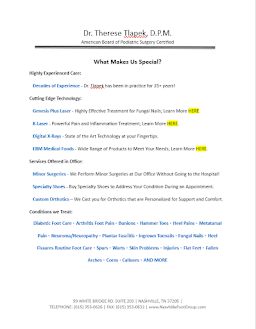According to WalletHub, Nashville is in the top 15 fastest growing cities in America. The great migration from other cities and towns to Nashville has many others asking, “Should I move to Nashville myself?” Here are just some of the general reasons you might want to move to Music City, plus some reasons not to move to Nashville for a fully balanced out Nashville pros and cons list. Let’s dive right in:
Moving to Nashville Pro: Strong Economy
Nashville has a thriving economy with a rapidly expanding job market, so the middle Tennessee capital city has a number of job opportunities.Perhaps more importantly, especially in the post-Covid world, the city has proven remarkably resilient in times of economic uncertainty.
Despite the teetering economy in 2020, abounding pandemic fears, repeated local flooding disasters, and even a most unusual tornado that struck downtown last year, a recent study found Nashville has grown more than any other city in the United States so far in 2021.
That study looked at GDP growth in major U.S. cities. Comparing Nashville to the national average when it comes to economic data shows why it grew so much:
“Nashville-Davidson has an unemployment rate of 4.5%. The US average is 6.0%.
Nashville-Davidson has seen the job market increase by 2.4% over the last year. Future job growth over the next ten years is predicted to be 48.3%, which is higher than the US average of 33.5%.”
There’s no doubt that Nashville’s economic powerhouse growth has attracted so many to move to Nashville in recent years. Abundant job opportunities aren’t the only thing putting up buildings downtown faster than all the cranes can keep up.
Nashville’s Low Taxes are Part of Its Low Cost of Living
One of the driving factors behind Nashville’s economic growth and so many business success stories is its more hands off state and municipal government, with no state income tax and low taxes overall, with responsible state spending that keeps the budget in surplus without overtaxing growth in the state’s economy.Tax rates can be a major factor when comparing cost of living among different cities and states. And low costs of living are attractive for businesses to open up new offices, plants, warehouses, stores, and other on-going operations with a regularly employed workforce. That has encouraged many Fortune 500 companies and funded startups to open doors in Nashville, keeping fresh job opportunities plentiful in Middle Tennessee.
Here’s how Tennessee’s Nashville-Davidson County compares to the national average for sales tax and income tax:
“The Sales Tax Rate for Nashville-Davidson is 9.3%. The US average is 7.3%.
The Income Tax Rate for Nashville-Davidson is 0.0%. The US average is 4.6%.”
For all the low taxation, the greater metro Nashville area furnishes a solid education, with more than one nationally ranked high school. The city is especially attractive to young families because of the low cost of living and the nice place to raise a family.
Pro: Nashville Culture, Sports, Food, and Nightlife
Another reason to move to Nashville is the culture of course. Not just Country Music, but music in general and other artistic and spiritual pursuits.In fact, Nashville is called the “Athens of the South” and is home to a full-scale replica of the ancient Greek Parthenon in Nashville Centennial Park downtown.
Major draws for country music fans include the Country Music Hall of Fame and Museum, the Grande Ole Opry, and several historic sites and attractions downtown.
The city has a thriving nightlife, restaurant, bar, and club scene that make it one of the number one party destinations in North America.
As of May 2010 Nashville is the only U.S. city on SportsPro’s “Seven sports event destinations to watch.” And Nashville ranked #11 for popular destinations in TripAdvisor’s Traveler’s Choice Best of the Best in 2021. Nashville’s hot chicken is a popular local favorite that travelers line up with locals to enjoy.
In June 2019 Forbes ranked Nashville on its list of Top 10 American Cities for Family Friendly Travel.
Con: Nashville’s Cost of Living Is Increasing
Although Middle Tennessee has a low cost of living, prices are increasing as the city’s economy experiences such a persistent boom in growth.Most notably housing prices are on the rise and construction work can’t keep up with the demand for housing units in the city as the influx of people to Nashville has continued in a steady stream over recent years. Areas around Nashville are seeing their housing prices increase as well, even with massive development of residential properties.
Those who choose to live outside of Nashville and commute to the city might face higher costs of living based on gas mileage and vehicle appreciation, plus most of all the value of their time spent commuting. But for others there might be no difference in their commute or even a shorter one depending on where they’re moving from.
Con: Road Traffic and Congestion
As with the rising cost of living as more people move to Nashville, another reason not to move to Nashville is increasing road traffic and periods of high congestion during rush hour and seasonal holidays. The construction crews can’t keep up the roads fast enough either.While traffic may not be as bad as L.A. or Atlanta, Nashville is starting to develop a reputation for some seriously time consuming logjams as more people take to the roads to get around the bustling city. Bring a comfortable seat pad for your car if you’re planning on moving to Nashville.












